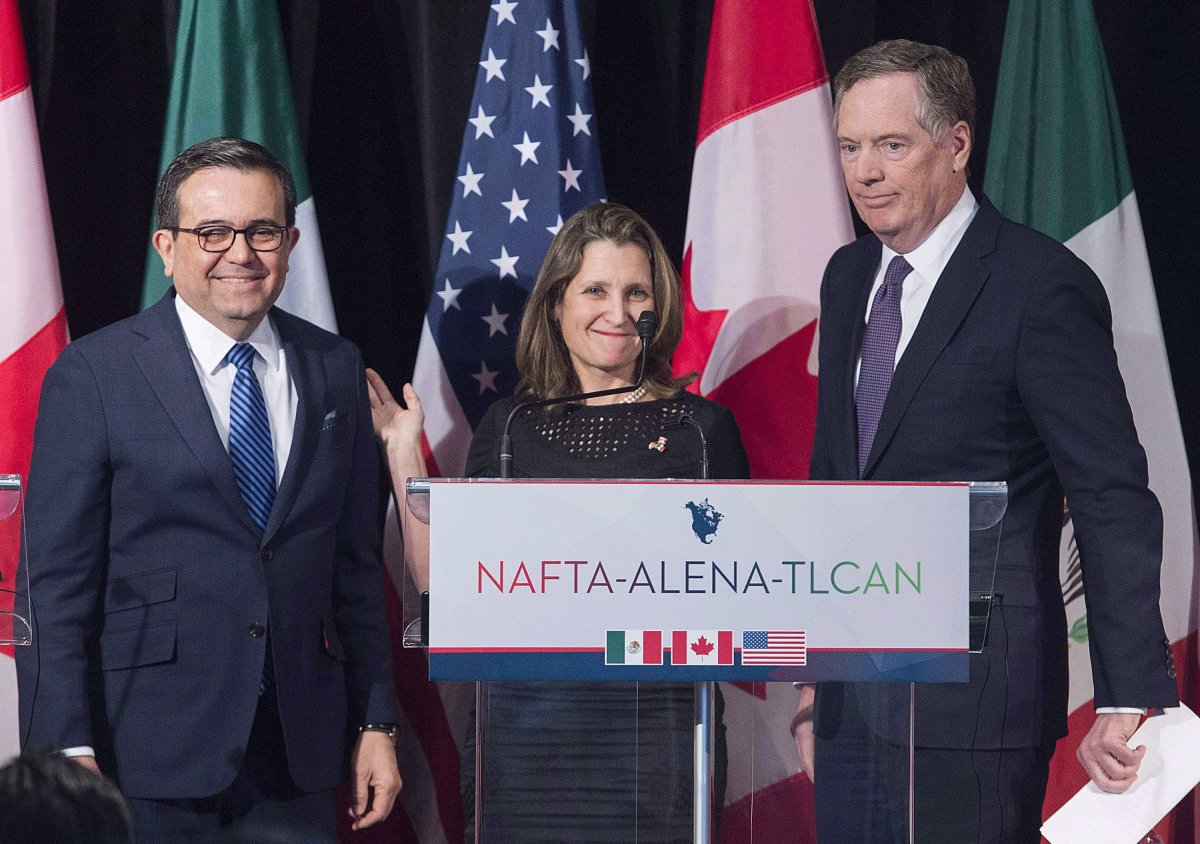WASHINGTON – The U.S. Senate’s top Republican said on Tuesday that senators will not vote to approve a revised North American trade pact in 2018, leaving the issue to the next Congress.

Senate Majority Leader Mitch McConnell told Bloomberg Television that the Senate will not have time to take up the new United States-Mexico-Canada Agreement trade deal before 2019.
“That will be a next-year issue because the process we have to go through doesn’t allow that to come up before the end of this year,” McConnell said.
Last week, the Senate’s No. 2 Republican, John Cornyn, had said it was “unlikely” the Senate would be able to vote in the final weeks of 2018. Some industry leaders had held out slim hope that a deal could still be approved this year.
The new trade deal is set to be signed on Nov. 30, but to comply with fast-track U.S. trade rules, Congress must get a report from the U.S. International Trade Commission (ITC) on the economic impacts of the trade deal.
On Friday, the ITC said it had launched an investigation into the impacts of the deal and will hold a Nov. 15 hearing on the agreement. The commission said it would accept written comments through Dec. 20.
Typically, Congress would hold hearings before approving a major trade agreement.
The agreement follows more than a year of talks to update the 1994 North American Free Trade Agreement (NAFTA) after President Donald Trump prepared to withdraw from the trade deal in early 2017.
WATCH: The numbers and dates to keep in mind for USMCA

The new agreement is aimed at bringing more jobs into the United States, with Canada and Mexico accepting more restrictive commerce with the United States, their main export customer. Any U.S. job gains are likely years away, and many analysts say the deal will have a modest economic impact.
A NAFTA collapse could have cost U.S. farmers, a key Trump constituency, access to major agricultural markets in Canada and Mexico at the same time that China has halted purchases of U.S. soybeans and other commodities due to a tariff war with the United States. NAFTA underpins about $1.2 trillion in annual trade among its three member countries.
— Reporting by David Shepardson; editing by Bernadette Baum and Jonathan Oatis






Comments